The Bygone Baguette Mailboxes of French Polynesia
Like birdhouses, but for bread.
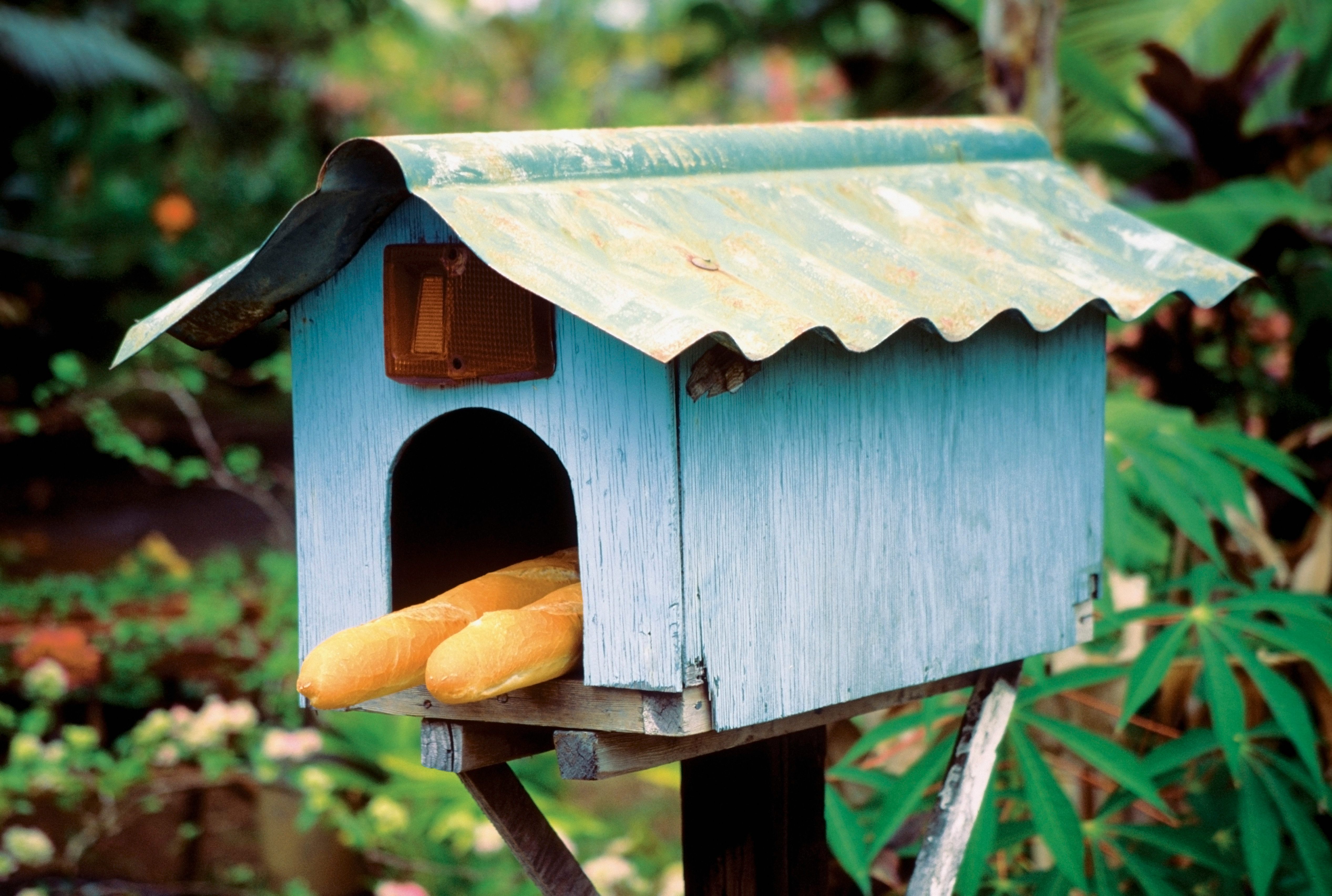
All around the world, millions of people wake up every morning, pour themselves a cup of coffee or tea, and go fetch the newspaper. Residents on the many islands that comprise French Polynesia, though, retrieve something much more exciting. Until recently, many locals grabbed their daily baguettes from a special mailbox.
Traditionally perched on roadsides, they aren’t like ordinary mailboxes. The bread boxes are homemade, often repurposed from metallic containers or wooden structures. Teremoana Pomare, who works with his wife at the bakery Pâtisserie Hilaire in Pape’ete, says they resemble large birdhouses. Some are short and squat, perfect to house smaller breads or pastries. Others are long enough to shield a baguette from the elements.
While fresh fruit and seafood both comprise a core part of Polynesian cuisine, baguettes have a particular place in French Polynesia due to colonialism. It’s unclear when the bread mailboxes became ubiquitous, though.
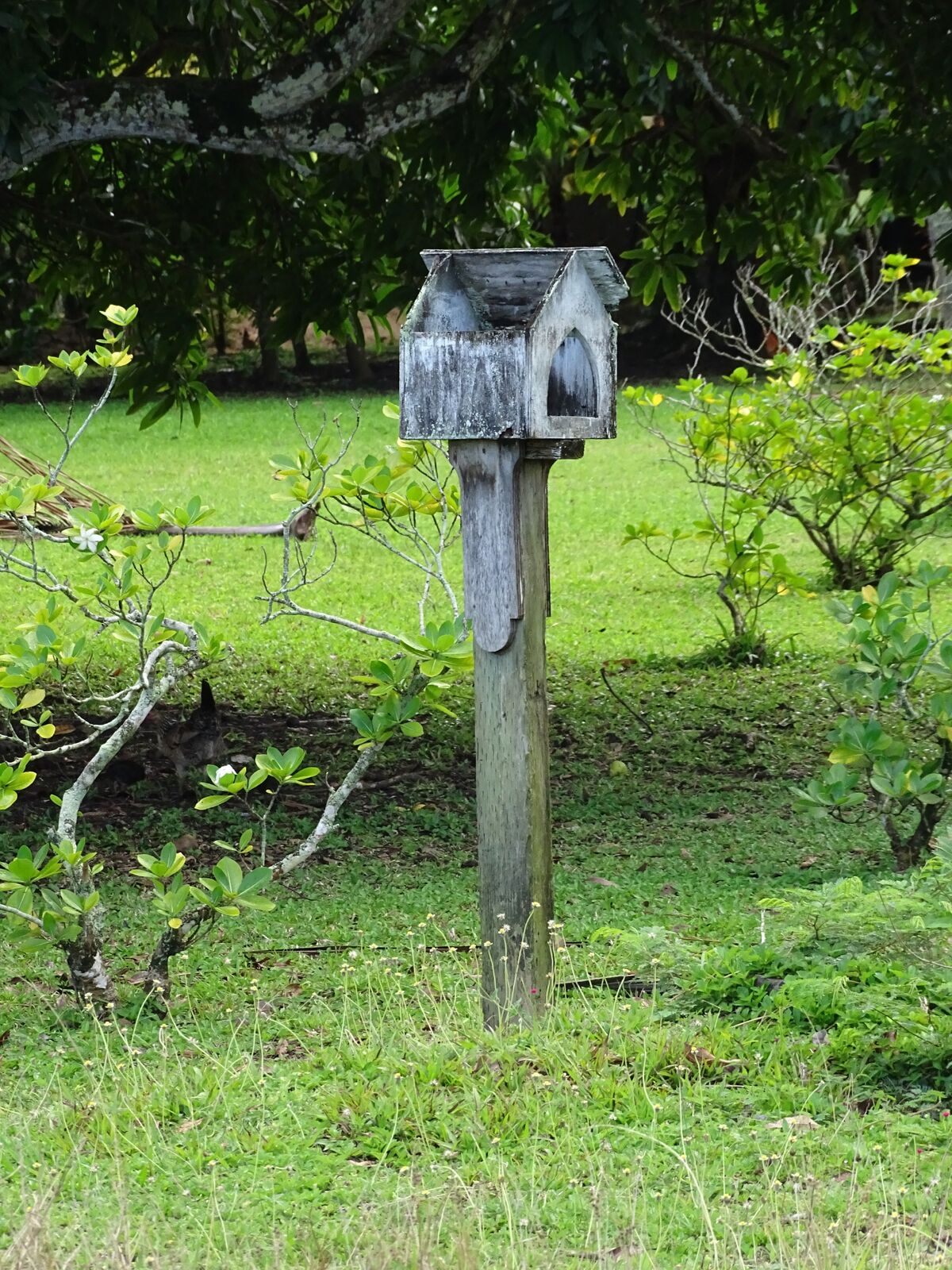
Jean-Louis Delezenne, who previously lived on Moorea, says that he used to go out to his mailbox and pick up his baguette and coconut croissant daily—which was delivered rain or shine. If someone wanted to get their actual mail, they had to go to a P.O. box in town. The bakery where Pomare works doesn’t deliver to people’s homes, yet Teremoana remembers this system well from his childhood. “When I was young and spent my holidays with my cousins in the countryside, my aunt would leave the exact amount of money in the ‘box’ the day before delivery,” he says. In the morning, the grocery car would drive by, and the baker would honk the horn to signal that the delivery had been made.
The baguette delivery system has all but disappeared throughout the countryside in French Polynesia’s larger islands, such as Tahiti—though empty bread mailboxes still fleck the roads. Some rural parts of smaller islands still use the delivery system, notes Tahiti Tourisme, as they may not have a bakery close by. Pomare likens it to the milk delivery of yesteryear, but isn’t sure why it stopped. “Maybe because the speed of life changes,” he speculates. “People are now always in a hurry!”
Gastro Obscura covers the world’s most wondrous food and drink.
Sign up for our regular newsletter.



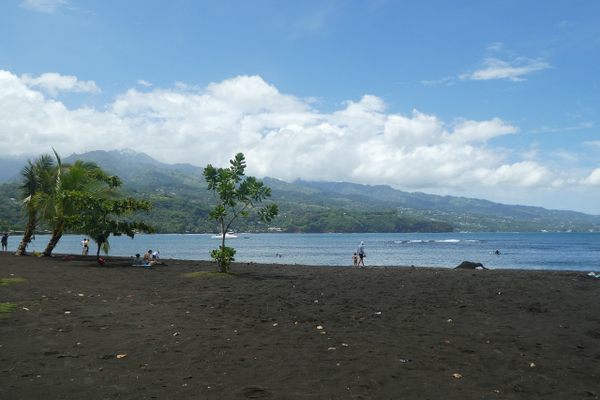
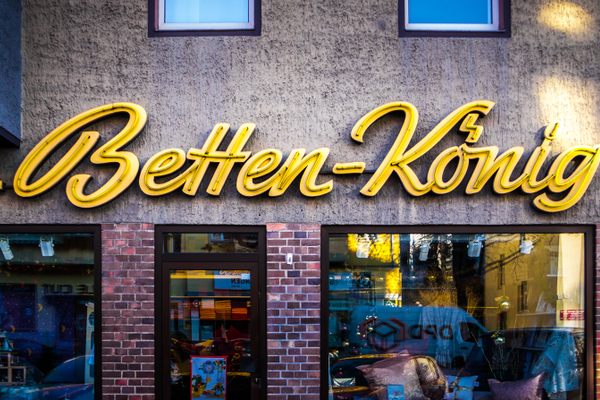



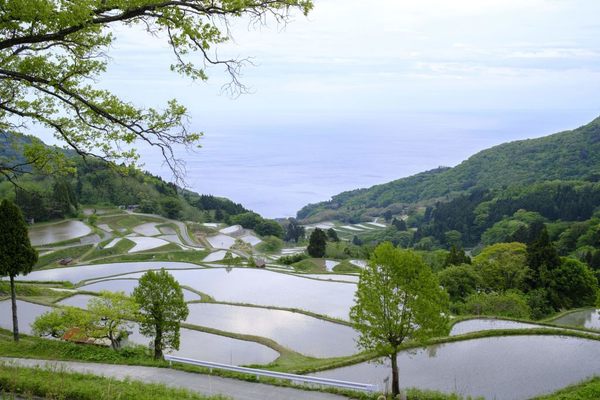
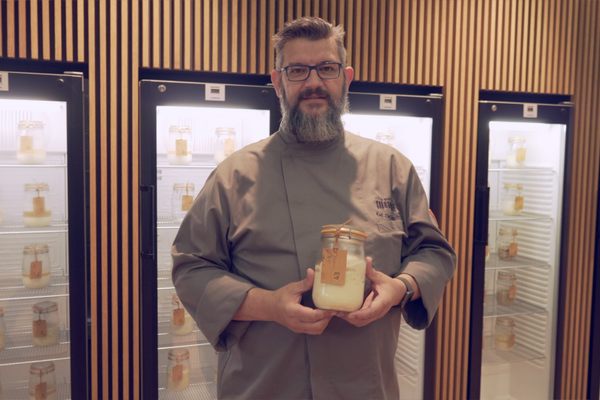











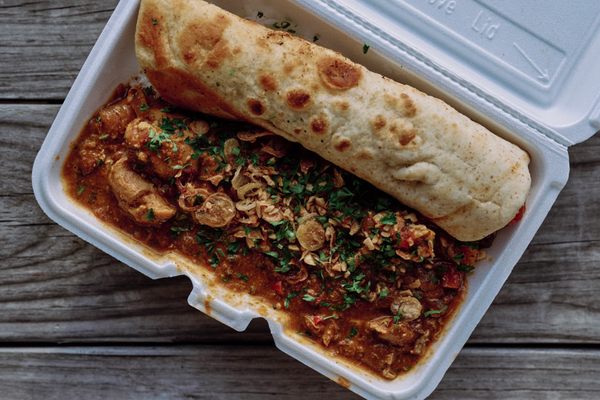

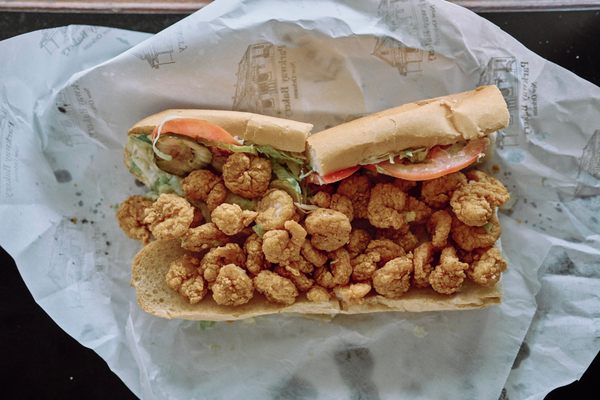
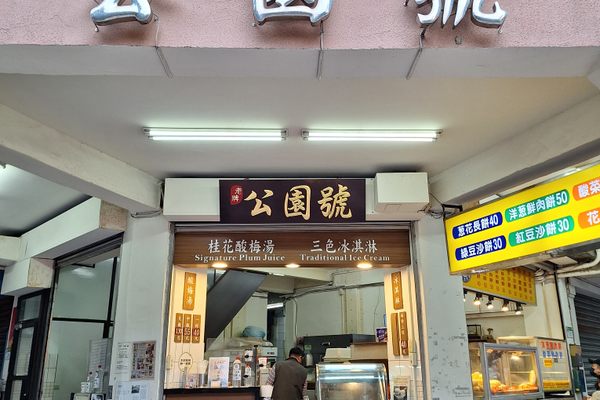
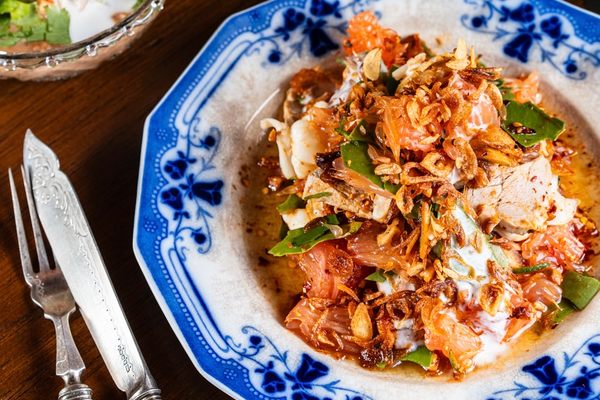


Follow us on Twitter to get the latest on the world's hidden wonders.
Like us on Facebook to get the latest on the world's hidden wonders.
Follow us on Twitter Like us on Facebook